Our new website is currently under construction - check back for more Capital Gains Tax information and resources soon
If you are a non-UK resident with property or investments in the UK, understanding Capital Gains Tax (CGT) is crucial for managing your financial affairs effectively.
Over the years, the rules for non-residents have changed significantly, meaning that UK CGT can be very complex for a non-UK resident.
This guide covers everything you need to know about UK Capital Gains Tax for non-UK residents, including current rates, available exemptions, and key strategies to minimise your liability.


UK Capital Gains Tax for Non-UK Residents: Your Complete Guide
Call: 0800 0016 878 - Email: info@capitalgainstax.co.uk
What is Capital Gains Tax for Non-UK Residents?
Capital Gains Tax is a tax on the profit made when you sell or dispose of an asset that has increased in value.
For non-UK residents, CGT applies primarily to UK property and land as well as certain other UK assets.
Whether you are an investor in UK real estate, have moved out of the UK and have retained your previous UK property or hold other taxable UK assets, knowing your obligations will help you manage your finances and avoid any unexpected tax bills, as well as presenting opportunities to reduce your UK CGT liabilities.
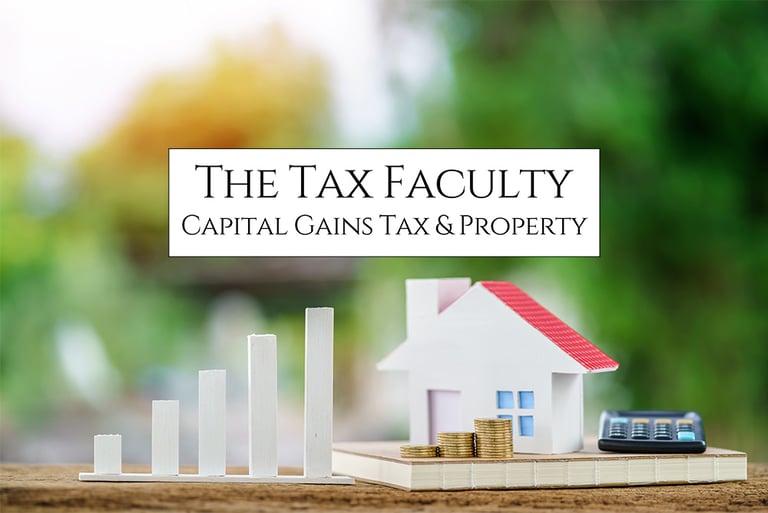

Capital Gains Tax Rates for Non-UK Residents (2024)
The Capital Gains Tax rates that will apply vary based on your UK income tax band and the type of asset you are selling. Below, we break down the UK CGT rates for non-UK resident individuals for 2024. For the tax year ended 5th April 2025 capital gains tax rates are as follows:
The rate of Capital Gains Tax for residential property in the UK is currently 18% at the basic rate and 24% at the higher rate.
The rate of Capital Gains Tax for commercial property and other assets that are not residential property will depend on the date on which the disposal of the asset took place.
Up to and including 29th October 2024, disposals of these assets were taxed at 10% at the basic rate and 20% at the higher rate.
From 30th October 2024 onwards, these assets are charged at 18% at the basic rate and 24% at the higher rate, aligning the rates to the same rates as residential property.
There are further rules and rates for gains from "carried interest" which we deal with in this article.
In addition to the rates noted above, the amount of CGT that is paid at the basic rate and / or higher rate will also depend on a number of other factors. It can be an easy mistake to think that a basic rate taxpayer will pay CGT at the basic rate on all capital gains - this is not always true.
See our worked example on our dedicated Capital Gains Tax Rates UK page to find out more.
There are also a number of exemptions, reliefs and allowances that can reduce the amount of CGT that is payable when you sell or give away an asset.
For example, if you are a non-UK resident who moved outside of the UK and you have lived in a property as your main home for a time, you will more than likely be entitled to Principle Private Residence ("PPR") relief when you sell the property, even if you are now living outside of the UK.
If you only lived there for part of the time that you owned it, you’ll still be entitled to a proportion of PPR relief which may reduce the Capital Gains Tax that may be due.
As a non-UK resident, there may also be ways to extend the amount of PPR relief that you can claim. This is a highly complex area of taxation and we recommend that you seek advice on such matters.
In some cases, you will also be eligible for a tax-free allowance of £3,000 per individual per year. This is called the Annual Exempt Amount ("AEA"), which means that if your total gains fall below £3,000 in the tax year, you may not pay any CGT at all.
If instead of a gain, you made a loss when selling an asset, this loss can be reported to HMRC and if the loss is allowable for tax purposes, you may be able to set this loss against other capital gains in the tax year or in the following tax years.
A loss is not usually allowable if:
You’ve sold or gifted the asset to a spouse or civil partner.
You’ve sold or gifted the asset to a family member.
You’ve sold or gifted the asset to a connected person (this can be complex – contact us for more information).
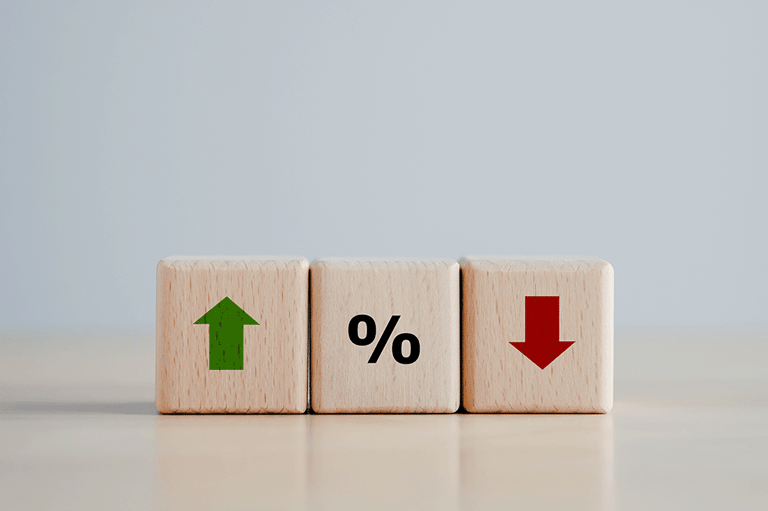

How to Calculate UK Capital Gains Tax as a Non-UK Resident
As with all UK capital gains , in order to calculate your CGT liability, you need to determine the profit you’ve made from the disposal of the asset in question. This will depend on a number of factors, including:
The amount you bought the property for (or in some circumstances the market value of the asset when you acquired it),
The amount you sold the property for (or in some circumstances the market value of the asset when you sold it or gave it away),
Any costs associated with buying or selling the property, such as estate agent fees or legal fees, and
Any improvements you have made to the asset during the period of ownership.
There are a number of other expenses which may be included in the capital gains tax computations depending on your individual circumstances.
As a non-UK resident, there are also a number of alternative methods of calculating the capital gains tax liability in the UK.
First, there is the time apportioned method for residential property - by working out the gain over the whole period (the date the property was acquired to the date it was disposed of) and then working out the gain since 5th April 2015 as a proportion of this total gain.
Finally, we have the "rebasing" method. The concept of rebasing is critical for non-UK residents who hold UK property, as it affects how your gains are calculated for Capital Gains Tax purposes. Rebasing allows you to use a specific date's market value as the base cost for calculating CGT on certain types of property. This approach can significantly reduce your taxable gain if property values have increased since the relevant date.
Residential Property (April 2015): For non-UK residents selling UK residential property, the base cost can be rebased to the property's market value as of 5th April 2015. This means any increase in the property's value before this date will not be subject to CGT, potentially reducing the gain on which you pay tax.
Non-Residential Property (April 2019): For non-residential property, non-UK residents can rebase the value to 5th April 2019. Gains accrued before this date are effectively excluded from CGT calculations, which again can significantly lessen the amount of tax owed.
Rebasing is particularly advantageous for non-UK residents who have held property for a long time, as it reduces the taxable portion of the gain. However, rebasing is not automatic — you must opt to use the rebasing value when reporting your gain to HMRC. In some cases, it may be more beneficial to use the original purchase cost or the time apportioned method, depending on how the property's value has changed.
As the CGT legislation governing the disposal of assets in the UK by non-UK residents is complex, we recommend discussing your situation with a qualified advisor so that you can be sure of the accuracy of your computations and that you are paying as little CGT as possible while still complying with the rules.
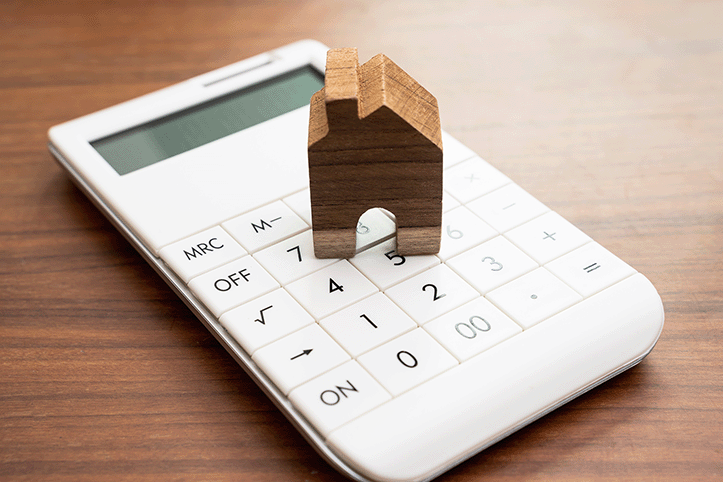

Reporting Capital Gains Tax on Residential Property
Once you have calculated your CGT liability, it’s crucial to report it correctly to HMRC.
You need to report and pay your CGT within 60 days of completing the sale of residential property.
Failing to meet this deadline can result in penalties and interest charges, so it’s important to stay compliant.
Reporting can be done through the HMRC CGT Return Online Service or by a paper CGT Return if you are unable to register for the online service.
If you usually file a Self-Assessment Tax Return, you will also need to include details of the sale of the residential property in your tax return for the year during which the property was sold.
If you’re unsure how to proceed, seeking the help of a tax advisor can ensure that everything is reported accurately and on time.
We have filed thousands of CGT Returns for our clients - feel free to drop us an email to discuss your circumstances and how we can help you to report your CGT Return on time - info@capitalgainstax.co.uk
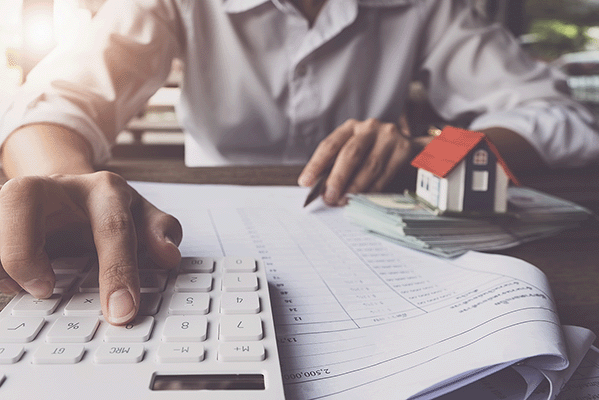

Frequently Asked Questions About Capital Gains Tax for Non-UK Residents
Q: Do non-UK residents need to pay CGT on UK property sales?
A: Yes, non-UK residents must pay CGT on the sale of UK residential and commercial properties. The tax is calculated based on the gain made since April 2015 for residential properties and April 2019 for commercial properties.
Q: Are non-UK residents eligible for any CGT exemptions?
A: Non-UK residents are eligible for the same CGT annual exemption allowance as UK residents (£3,000 for individuals in 2024). However, they are not eligible for Private Residence Relief unless specific criteria are met.
Q: Do non-UK residents need to report property sales to HMRC?
A: Yes, non-UK residents must report property sales to HMRC and pay any CGT owed within 60 days of the completion date.
Q: Can non-UK residents claim expenses to reduce their CGT liability?
A: Yes, non-UK residents can deduct allowable expenses such as legal fees, estate agent fees, and the cost of property improvements when calculating their taxable gain.
Q: How does the UK tax non-UK residents on rental income?
A: Non-UK residents must declare rental income from UK properties to HMRC. Tax is applied after deducting allowable expenses, such as mortgage interest, repairs, and letting agent fees.
Q: Can non-UK residents use Double Taxation Agreements to reduce UK tax?
A: Yes, many countries have Double Taxation Agreements with the UK. These agreements can help non-UK residents avoid being taxed twice on the same income or gains.
Q: How does HMRC calculate CGT for non-UK residents selling a UK property?
A: For non-UK residents, CGT is calculated on the property’s increase in value since the relevant rebasing date (April 2015 for residential property and April 2019 for commercial property).
Q: What happens if a non-UK resident fails to report a property sale to HMRC?
A: Failure to report the sale within 60 days can result in penalties and interest charges. HMRC also has access to property transaction data, making non-compliance risky.
Q: Can non-UK residents benefit from Business Asset Disposal Relief?
A: Non-UK residents may qualify for Business Asset Disposal Relief if the property was used for a qualifying business and they meet the required ownership and operational criteria.
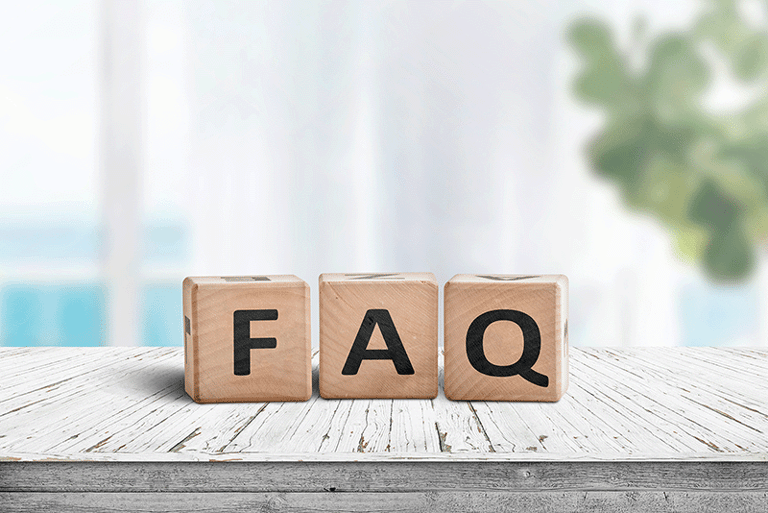

Managing UK Capital Gains Tax can be challenging, especially with the ever-changing rules and rates for a non-UK resident. At CapitalGainsTax.co.uk, we specialise in helping non-UK resident individuals navigate the complexities of CGT on UK-based property sales. Our team, led by former Senior HMRC Tax Professionals, provides tailored advice to minimise your tax liability while ensuring compliance.
If you have sold or are thinking of selling a UK-based residential property and want to make sure you are not paying more CGT than you need to, contact us today for a free consultation. We can help you navigate the complexities of CGT and ensure that once a property has sold that all filing is completed within the 60-day time limit.
If you require assistance with you CGT circumstances, please feel free to contact us on info@capitalgainstax.co.uk or call us free on 0800 0016 878 for a free initial consultation.
You can also complete the form below and one of our team will get back to you as soon as possible.
Get Expert Help with Capital Gains Tax as a Non-UK Resident
Get in touch
Tax Troubles? We're here to help
We can solve your Capital Gains Tax problems, with ex-senior expert HMRC inspectors here to help to take the stress away from your tax worries.
We do everything for you, including filing returns and giving advice that may help to reduce the amount of tax that you owe.
Our guarantee to you - You will pay the lowest amount of tax possible, while complying with the law.
Contact us free on 0800 0016 878, email info@capitalgainstax.co.uk or fill in our handy form and on of our experts will get back to you as soon as possible.
Phone


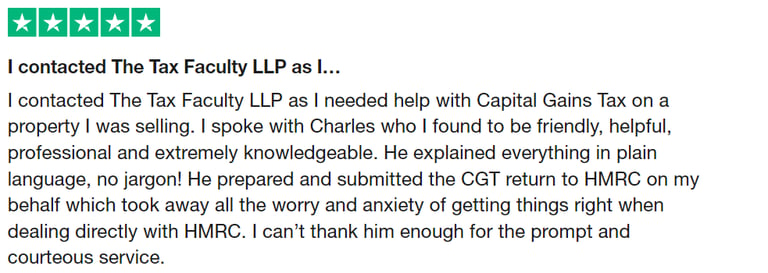






www.capitalgainstax.co.uk brought to you by The Tax Faculty
Call us on 0800 0016 878 for a free consultation
Copyright © 2024 The Tax Faculty - All Rights Reserved
